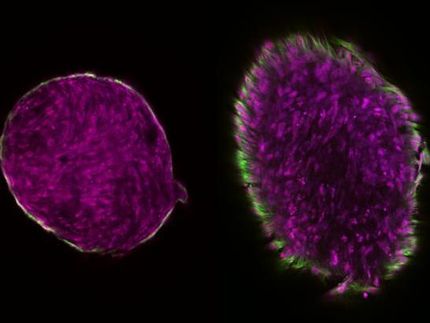Newly identified growth factor promotes stem cell growth, regeneration
Advertisement
Scientists at Duke University Medical Center have identified a new growth factor that stimulates the expansion and regeneration of hematopoietic (blood-forming) stem cells in culture and in laboratory animals. The discovery, appearing in the journal Nature medicine , may help researchers overcome one of the most frustrating barriers to cellular therapy: the fact that stem cells are so few in number and so stubbornly resistant to expansion. Researchers believe that umbilical cord blood could serve as a universal source of stem cells for all patients who need a stem cell transplant, but the numbers of stem cells in cord blood units are limited, so there is a clinical need to develop a method to expand cord blood stem cells for transplantation purposes. "Unfortunately, there are no soluble growth factors identified to date that have been proven to expand human stem cells for therapeutic purposes," said John Chute, M.D., a stem cell transplant physician and cell biologist at Duke and senior author of the paper.
Chute, working with Heather Himburg, a post-doctoral fellow in his laboratory, discovered that adding pleiotrophin, a naturally-occurring growth factor, stimulated a ten-fold expansion of stem cells taken from the bone marrow of a mouse.
They also found that pleiotrophin increased the numbers of human cord blood stem cells in culture that were capable of engraftment in immune-deficient mice. When they injected pleiotrophin into mice that had received bone marrow-suppressive radiation, they observed a 10-fold increase in bone marrow stem cells compared to untreated mice. "These results confirmed that pleiotrophin induces stem cell regeneration following injury," said Chute.
Chute says the finding could lead to broader application of cord blood transplants for the large numbers of patients who do not have an immune-matched donor "Perhaps more importantly, systemic treatment with pleiotrophin may have the potential to accelerate recovery of the blood and immune system in patients undergoing chemotherapy or radiotherapy," he said.
Given the potency of the effect of pleiotrophin on stem cell expansion, the authors examined whether pleiotrophin provoked blood-forming cells to become malignant. So far, Chute says they have not seen any evidence of cancer in mice up to six months after treatment with pleiotrophin.
The Duke team is already conducting further experiments to determine if pleiotrophin is necessary for normal stem cell growth and development, and Chute says it will be important to conduct additional animal studies before moving into human clinical trials. "At this point, any progress we can make that helps us better understand which biological pathways are activated in stem cells in response to pleiotrophin will help move the discovery forward."























































